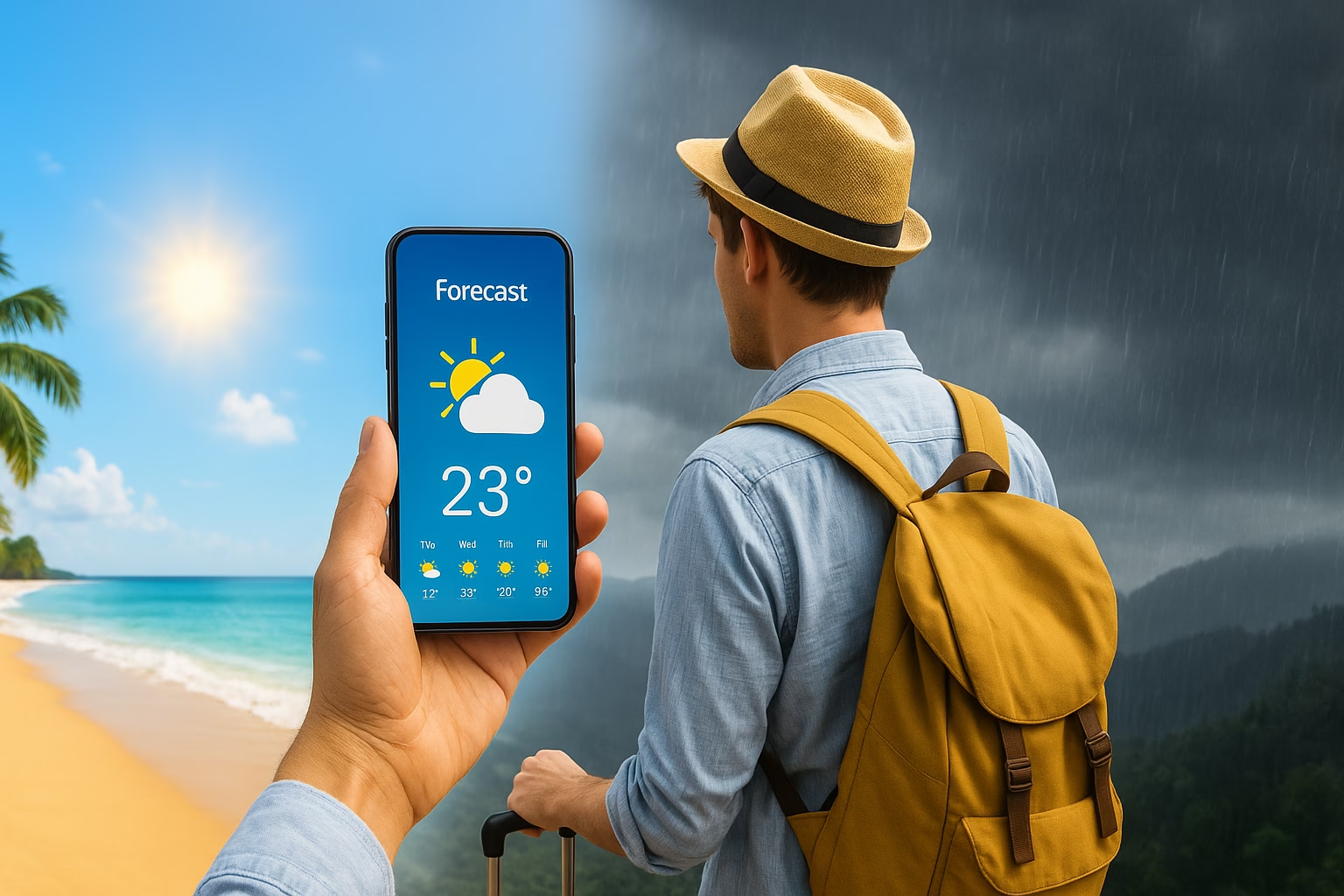What if I told you that the one thing most travelers ignore is the exact reason their dream vacation turns into a nightmare?
Flights get canceled, plans get ruined, and budgets go out of control—not because of bad luck, but because of one simple mistake: not checking the weather before traveling.
Traveling is exciting, but one thing that can make or break your trip is weather. Imagine booking your dream vacation only to face heavy rain, storms, or extreme heat when you arrive. That’s why tracking weather conditions before planning any trip is not just a smart move—it’s essential for your safety, comfort, and budget.
In this article, we’ll explain why weather matters, how to check accurate forecasts, and the best tools to use. Let’s dive in!
Why Weather Conditions Matter Before Travel
Weather influences almost every part of your trip:
- Safety Risks: Hurricanes, snowstorms, and heavy rains can delay flights, close roads, or even make destinations unsafe.
- Budget Issues: Bad weather leads to cancellations, extra hotel stays, and rescheduled flights—costing more money.
- Comfort and Experience: Imagine booking a beach resort, only to find nonstop rain!
Common Weather Problems Travelers Face
Step 1: Research Seasonal Weather
Every destination has peak and off-seasons. For example:
- Paris: Best in spring (March-May).
- Maldives: Dry season (November-April) is ideal.
Step 2: Use Accurate Weather Forecasts
Check weather 10-15 days before travel on reliable platforms like:
Step 3: Monitor Before Departure
Weather changes fast. Recheck 24–48 hours before traveling.
- AccuWeather
- The Weather Channel
- Windy (for storms & wind details)
Step 4: Enable Weather Alerts
Use apps that send real-time notifications for storms or sudden temperature changes.
Best Weather Apps for Travelers in 2025
- AccuWeather: Accurate global forecasts with radar maps.
- Weather Underground: Great for local updates and historical data.
- Windy: Perfect for adventure travelers and pilots.
- Google Weather: Quick forecast for any location.
Tips to Plan Your Trip According to Weather
Pack Smart: Umbrella, raincoat, sunscreen, winter jackets—pack based on forecast.
Flexible Itinerary: Have indoor options if outdoor plans fail.
Travel Insurance: Choose coverage for weather-related delays and cancellations.
Book Refundable Options: Hotels and flights should allow cancellations in bad weather.
Activities Based on Weather Conditions
- Beach Holidays: Check for sunny days and calm seas.
- Hiking & Trekking: Avoid rainy season to prevent slippery trails.
- Winter Sports: Confirm snowfall before booking ski trips.
What Happens If You Ignore Weather Forecasts?
- Flights get delayed or canceled → Wasted money and time.
- Outdoor plans fail → You miss key experiences.
- Health risks → Heatstroke or hypothermia due to wrong clothing.
Weather is the most important factor that decides whether your trip will be perfect or problematic. By tracking forecasts, planning smart, and staying flexible, you can avoid disruptions and make your vacation truly enjoyable.
Golden Rule for Travelers: Always check the weather before packing your bags!
FAQs
Q1: How accurate are long-term forecasts?
Most forecasts are reliable for up to 7–10 days. Beyond that, check seasonal patterns.
Q2: Which app is best for global weather updates?
AccuWeather and The Weather Channel are highly recommended.
Q3: Is travel insurance necessary for weather disruptions?
Yes, choose plans that cover weather-related cancellations and delays.
Q4: Can I travel during the rainy season?
Yes, but plan indoor activities and carry proper rain gear.

